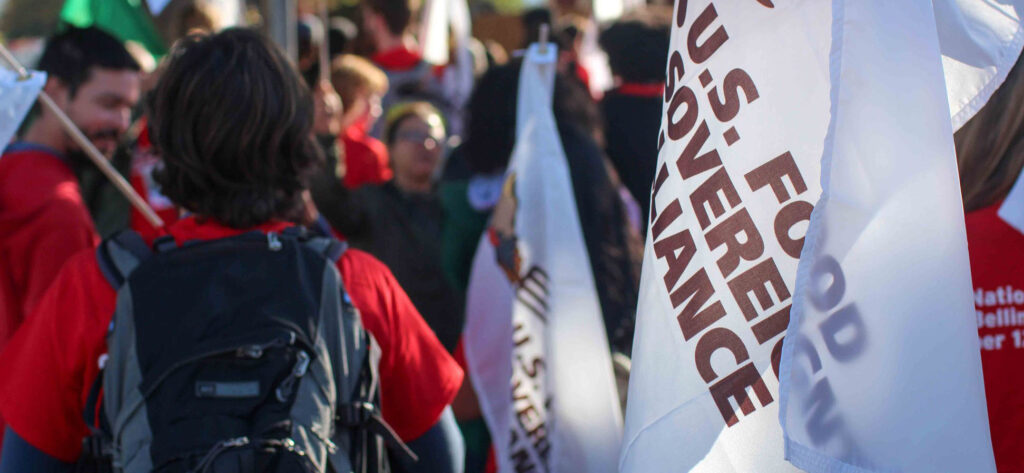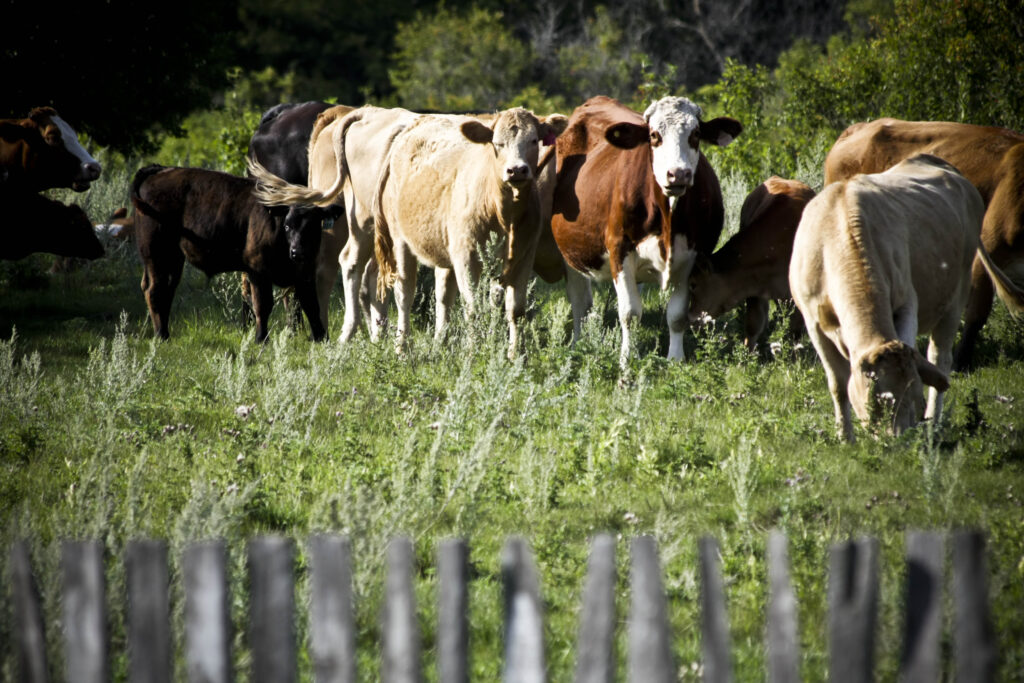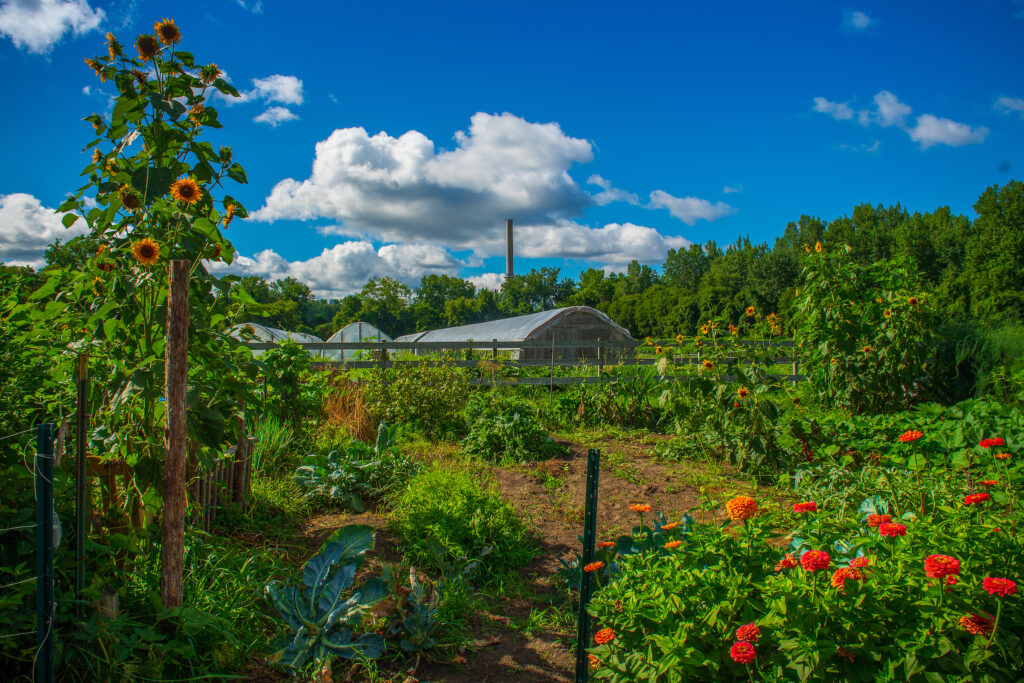The Time for Agroecology is Now: Weaving a Research Agenda to Support Transformative Agroecology in the U.S.A.
This blog shares some reflections from the Institute for Agroecology on the upcoming U.S. Agroecology Summit in Kansas City which focuses on developing a roadmap for agroecology research. In the run up to the conference, there have been some important discussions on how to best advance a research program that can support agroecology transitions. We have been reflecting on these discussions and are sharing some of our thinking here in the run up to the conference.
Written by Institute for Agroecology (IFA) team members: Colin Anderson, Martha Caswell, Katie Horner, Ernesto Méndez and guest: Antonio Roman-Alcalá

When we’re out spending time with collaborators in international networks and movements, we are often urged to push for agroecology in the U.S. given its outsized influence on the world stage. They ask, why aren’t we doing more to build out agroecology here at home – in the U.S., the so-called “belly of the beast” – and how can we act, from the U.S., to support the growth of agroecology in other places.
It is true that the U.S. lags behind relative to other places in terms of social movements pushing for agroecology. While there are powerful voices making the case for agroecology in the U.S., it is significantly underdeveloped in policy and in practice, and deeply undermined by disabling factors related to our national political economy.
We have been working alongside our peers in an organizing committee to convene an Agroecology Summit taking place in Kansas City from May 22-25. We will bring together 100 agroecologists from across the country to debate how to advance a research program to support agroecology from within the U.S.
The participants are diverse but have one thing in common: a belief that agroecology provides the most viable pathway for transforming food systems for social justice and sustainability. Recognizing that there are other spaces where different aspects of agroecology (e.g. practice, movement base building, advocacy, etc.) are being developed, this summit focuses on research in particular. It has been organized by committed scholars who believe in a transdisciplinary approach that brings together the knowledge of social movements, practitioners and researchers.
To this end, a back-of-the-envelope tally shows a fairly balanced mix of people, including: a) ~30 civil society leaders and farmers (half of whom were nominated by organizations who were invited to participate); b) ~30 researchers who focus their work within the natural sciences and c) ~30 researchers representing the social sciences.

The Summit includes the participation of researchers, farmers, policy-makers, Indigenous people, funders, students and an intentional spread in geographical representation. Because agroecology values multiple ways of knowing and appreciates that interplay, many participants fit into more than one of the categories listed above.
Ensuring diverse participation was a priority for the Organizing Committee, who are committed to: a) bringing diverse voices and ways of knowing to the table; b) creating an agenda and process for the conference that allows these diverse participants to share their views; and c) guiding the discussions through a participatory design.
Despite these commitments, the conference cannot claim to represent the full diversity of perspectives and interests that engage in agroecological research. This is due in part to the politics of knowledge that encircle our food system, and is also reflective of the fact that the Organizing Committee convening the summit is composed primarily of researchers. Naming the biases that we carry includes recognizing that this convening may replicate the over- and under-representation of certain types of knowledge. Despite this limitation, we feel excited to be in conversation with the many that will come together in Kansas City.
From our view, initiating conversations about the change needed within research institutions is critically important for transgressing the boundaries that often lock us into static thinking and ineffective sectoral approaches. By doing our best to invite plural perspectives, make space for emergent ideas, and implement a participatory design process, we hope to also be laying the groundwork for an intense and generative process of relationship-building, co-learning, and co-production of knowledge across sectors.
Since these convenings are often planned ‘behind the curtain’, in the lead up to the conference, we want to share some of the discussions and debates we have had in our planning for the summit and our reflections on issues that have emerged in conversation with our peers, partners, and allies:
- Linking to Food Sovereignty
- Taking an internationalist perspective
- Where is this taking us?
Any hope for agroecology needs to be rooted in the struggle for sovereignty
We know that we desperately need to study, hone and implement farming practices that improve soil health and support agrobiodiversity. These technical and scientific issues are important, yet they are insufficient for realizing socially just and resilient agrifood systems – even if they have been proven effective many times over. Our social movement partners are steadfast in the demand that any summit on agroecology needs to foreground food sovereignty – a concept that has been developed and fought for by peasant, Indigenous and other movements around the world for decades.

Our position at the UVM Institute for Agroecology (IFA) is that for agroecology to be a viable alternative to corporate-industrial agriculture, we must transform the wider political, economic, and cultural context that undermines the food sovereignty of peoples and communities. A precondition for agroecology is that people have the right to define their own food and agriculture systems – among other things this means control over seeds, ceremony and land; each of which are critical components of food sovereignty. That is to say, our efforts to build agroecology must center issues of power and agency.
Agroecology in the U.S.: An internationalist Perspective
In ongoing discussions on the implications of an agroecology summit in the U.S., we have wrestled with the tension of needing to get our own house in order, while also staying connected to international dynamics.
This includes naming how economic, cultural, and political systems of power and control in the United States have long undermined food sovereignty and dismantled agroecological food systems around the world. This continues to be the case as U.S. foreign policy, corporate NGOs (AGRA, CropLife), and development agencies expend massive resources and power to promote industrial agriculture businesses and interests, downplaying the destructive implications of these actions.
We also need to check our hubris. Those who hope to advance agroecology in the US.. have so much to learn from farmers, peasants, Indigenous communities, and researchers who have long been advancing agroecology in the Global South. We risk neglecting their experience and knowledge if efforts to build agroecology are carried out in national isolation.
The Outcomes – Where is This Going?
We come to this summit with an intention to continue this learning journey and national conversation-process. We intend to listen carefully, especially to our grassroots attendees and their views on what is needed from the domain of research in the coming years. We aim to amplify the outcomes of the conference and work with those who share a commitment to transformative agroecology that leads to direct action for addressing these needs.
We will come to the summit with an open mind and heart, in the spirit of humility, mutuality and solidarity. We will arrive prepared to listen, share, learn and be challenged through dialogue with the diversity of voices that are about to converge in Kansas City. Onwards!
